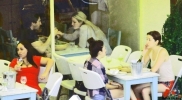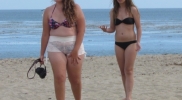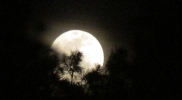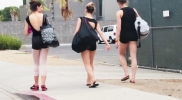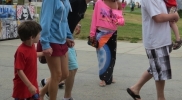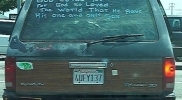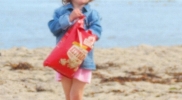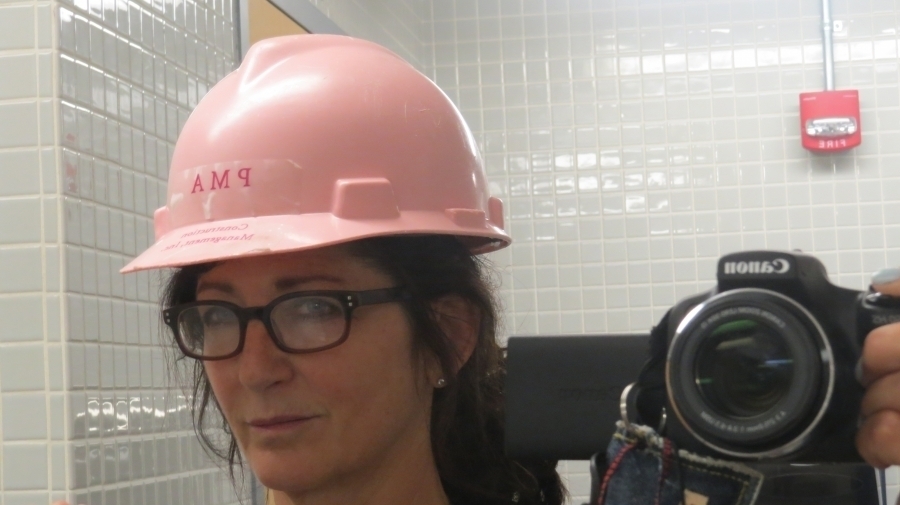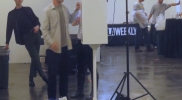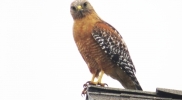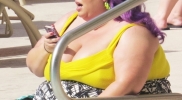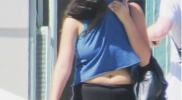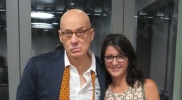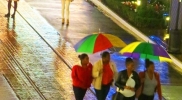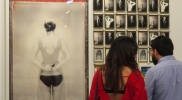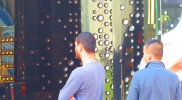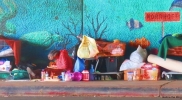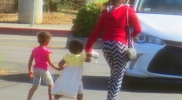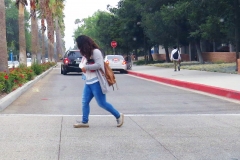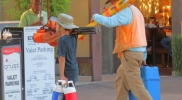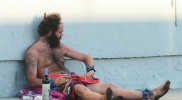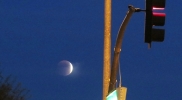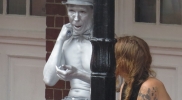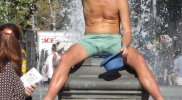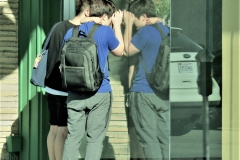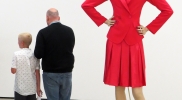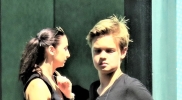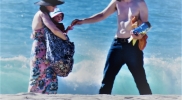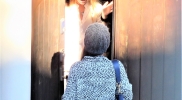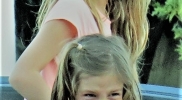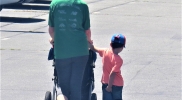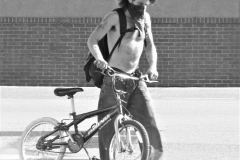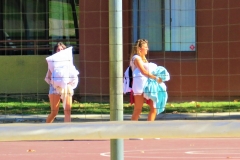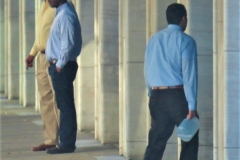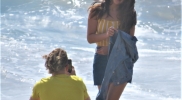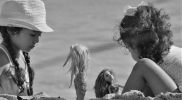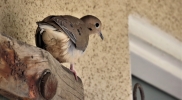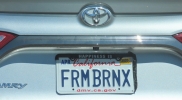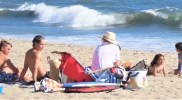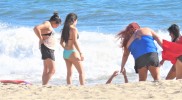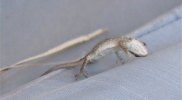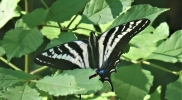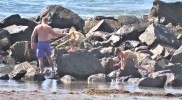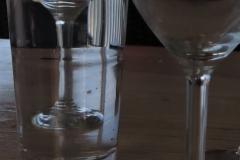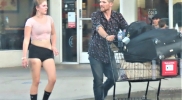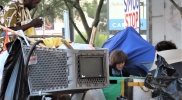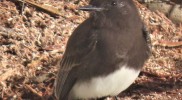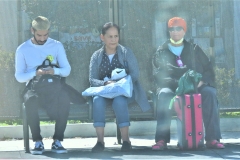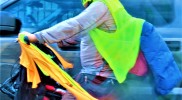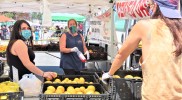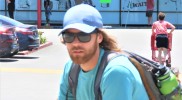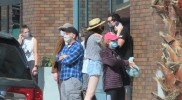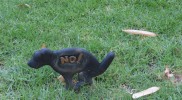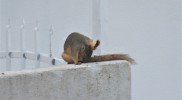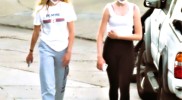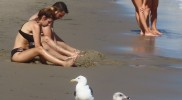|
|
Best Trivia - Animals
| Favorite Trivia – ANIMALS
|
| “… it is the dogs who have their masters on a leash, though no one seems to have caught on to the fact. If you have voluntarily saddled yourself with a dog that you’ll have to walk twice a day, come rain wind or snow, that is as good as having put a leash around your own neck.”
Muriel Barbery – The Elegance of the Hedgehog
|
| “Mosquito: A small insect designed by God to make us think better of a fly.”
Evan Esar – Esar’s Comic Dictionary
|
| “Porcupine: Animated cactus.”
Evan Esar – Esar’s Comic Dictionary
|
| “Jenny, the ship’s cat and part of the crew, had immediately picked herself a comfortable corner; she varied her usual Christmas routine on previous ships by presenting the Titanic with a litter of kittens in April,” states Stewardess Violet Jessop. But fireman Joe Mulholland, who had worked on the Titanic from Belfast to Southampton, said later that he decided not to sign on for the maiden voyage across the Atlantic when he saw Jenny carry her tiny kittens off, one by one, down the gangplank. He thought it was a bad omen.”
Deborah Hopkinson – Titanic: Voices From The Disaster
|
|
The French registry for dogs has followed a system for naming that makes it easy to determine the age of a dog by its registered name (since 1926). Over the years, the letters K, Q, W, X, Y and Z were eliminated because it was difficult to find names beginning with them. Every 20 years the alphabet starts over. [2017: N, 2018: O, 2019: P, 2020: R, etc.]
|
|
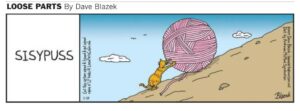
|
| “Time flies when you’re watching butterflies.”
Patty Martino Alspaugh
|
| “Whales must live to extreme old age—all indications point to this. Someone found the point of a Norman harpoon from the ninth century inside the body of one of these beasts.” [January 24, 1944]
Ernst Jünger – A German Officer in Occupied Paris: The War Journals, 1941-1945
|
| “For a while, homing pigeons were most notable for their use in military operations. When Napoleon was defeated at Waterloo in 1815, a swift-flying carrier pigeon delivered the message from present-day Belgium across the English Channel to Count Rothschild, of the Rothschild banking dynasty, who was apparently the first person in England to hear the news. The quick-thinking count made several critical financial decisions and amassed a considerable fortune based on his advance knowledge of the outcome of Napoleon’s last campaign.”
Noah Strycker – The Thing With Feathers: The Surprising Lives of Birds and What They Reveal About Being Human
|
| French: “Plus je vois les hommes, plus j’admire les chiens.” English: “The more I see of men, the more I admire dogs.” |
“Walking the dog,
you meet
lots of dogs.”
Sōshi
|
| “The story is told that the Declaration of Independence was signed on July 4 because the horse flies in Philadelphia were intolerable that year, and the delegates called for an early vote so they could get out of town.
Sallie Tisdale – “The Sutra Of Maggots and Blowflies” (The Inevitable: Contemporary Writers Confront Death, ed. by David Shields and Bradford Morrow)
|
| “Telephone poles ran along the street and small sparrows had aligned themselves on the wire. Beasley watched them. They all flew away, as if they’d simultaneously received the same urgent message.”
“Sugarbaby” (I Hate To See That Evening Sun Go Down – William Gay)
|
| “Two tramps are walking down the street when one suddenly grabs the other. ‘Careful!’ he says. ‘You nearly trod in that dog mess.’ ‘Is it really dog mess?’ says his friend.
‘We’d better check,’ says the first. So they bend down, they peer at the mess, one sniffs it, the other sticks his finger in it, they each scoop some up and finally they both taste it.
‘Ugh!’ they both cry. ‘That’s disgusting!’
‘Yes,’ says one, ‘that’s definitely dog mess.’
‘Yes,’ says his friend, ‘Thank goodness we didn’t step in it.'”
|
| “Have you ever seen a dog falling upon a marrow-bone?. . . If you have observed him, you must have noted with what devotion he watches that bone, with what care he guards it, with what fervor he holds on to it, with what prudence he bites into it, with what affection he breaks it, and with what diligence he sucks it. What leads him to do this? What is the hope behind his effort? What does he expect to gain? Nothing more than a little marrow. It is true that this is more delicious than large quantities of any other kind of meat, for the reason that marrow is a form of nourishment which nature has worked out to perfection.”
Rabelais (trans. by Samuel Putnam) – Book First: The Most Horrific Life of the Great Gargantua
|
| “Chungking was like a nightmare. The hilly alleys swarmed with evil-looking coolie soldiers . . . In one of those alleys I saw the kind of thing I’d heard about but thought just a good yarn. A snake got into a missionary’s birdcage, ate the bird, and then couldn’t get out on account of the bird inside him.”
Maud Parrish – Nine Pounds of Luggage
|
|
“The bark on several of the trees in the mazzard orchards rubbed into a beautifully smooth, polished surface by the red Devon cows when scratching where it itched; I put my hand on the smooth almost cherry-red patch of bark and felt delighted and grateful that cows had fleas.”
Barbellion’s Journal, 1909 (Christopher Morley’s Book of Days for 1931 [August 31])
|
| “. . . marmots by the thousands ran in and out of tunneled holes in the ground. The Chinese would catch one and hold it in the hole of another just for the fun of the furious fight that would follow.”
Maud Parrish – Nine Pounds of Luggage
|
| “During the midday break visited the dog cemetery located on one of the small islands in the Seine near the Porte Lavallois. At the entrance stands a monument to the Saint Bernard, Barry, who saved the lives of over forty hikers lost in the snow. He stands in stark contrast to Becerillo, the huge attack dog who mauled and killed hundreds of naked Indians [vicious dog of the conquistadors-16th C]. Man, with all his virtues and vices, is reflected in the animals he breeds.” [May 3, 1944]
Ernst Jünger – A German Officer In Occupied Paris: The War Journals, 1941-1945
|
| “Never kill a spider or a dragonfly or a lizard or a garden snake, because they all eat mosquitoes. So do toads; in fact, all snakes and toads eat mosquitoes.”
Maria Leach – The Soup Stone: The Magic of Familiar Things
|
| “A Chinese woman on an island near Hong Kong was busy cutting grass. She laid her little child on the earth where it was devoured by a python that darted from the bushes. It was impossible to get help. Of course, infants left unguarded are prey to attacks from almost all animals, right down to the ants.” [November 10, 1944]
Ernst Jünger – A German Officer In Occupied Paris: The War Journals, 1941-1945
|
| “To sum up: the queen bee, when she is ready, takes off on her nuptial flight, pursued by a cloud of drones. The first drone to reach her copulates with her, then dies, because after the act his genital organ remains stuck inside. So he is amputated and this kills him. The second drone to reach the queen, in order to copulate with her, has to remove the genital organ of the previous drone with his feelers and, of course, the same thing will happen to him, and so on and so forth until you end up with ten or fifteen drones who have filled up the queen’s sperm pouch and will enable her, in the course of four or five years, to produce two hundred thousand eggs a year.”
Muriel Barbery – The Elegance of the Hedgehog
|
| “Vulture digestion has lately caught the interest of medical professionals. Vulture excrement is, amazingly, completely sterile. One delectable fact of life for vultures is that they habitually defecate down their own legs, which serves two practical benefits: It cools them off through evaporation (vultures can’t sweat), and the feces help sterilize the bird’s legs, which have often just been dragged though bacteria-filled carcasses. Recent evidence indicates that vulture stomachs can process and sterilize anthrax spores without ill effect. They can eat botulism-infected carcasses and kill the bacteria while their immune systems deal with associated toxins. . . If we could figure out exactly how these scavengers handle such serious infections and poisons, perhaps we might find a way to apply that knowledge to humans—with major implications for preventing biological warfare and epidemics.”
Noah Strycker – The Thing With Feathers: The Surprising Lives of Birds and What They Reveal About Being Human
|
| “He [Theodore Pergande, a renowned entomologist] was observing carpenter ants one day when he saw the heads of the ants begin to fall off one at a time. When he investigated, he found what has become known colloquially as the ant-decapitating fly. The mature fly lays eggs on an ant’s neck. The larvae hatch and then bore into the ant’s head, eating it from the inside. Eating, the larva grows, slowly killing the ant, which apparently expires just as its head pops off.”
Sallie Tisdale – “The Sutra Of Maggots and Blowflies” (The Inevitable: Contemporary Writers Confront Death, ed. by David Shields and Bradford Morrow)
|
| “‘What’s the difference between a wallaby and a kangaroo, Joe?’ “‘A wallaby’s smaller,’ he said. ‘A big, buck kangaroo, he’ll stand up to six feet high, but a wallaby not more than four. A kangaroo, he’s got a face like a deer. A wallaby, he’s got a face like a rabbit or a rat.'”
Nevil Shute – A Town Like Alice
|
| “A dog’s sense of smell is approximately one thousand times more sensitive than that of a human. While dogs have an estimated 220 million olfactory receptors in their noses, man, their best friend, has a mere 5 million.”
Leonard S. Marcus (The Annotated Phantom Tollbooth by Norton Juster)
|
| “After years of painstaking work a man teaches his parrot not only to speak, but to recite the entire soliloquy from Hamlet. After all this effort, the man decides to capitalize on the matter and takes his parrot to the pub, where he bets everyone the bird can recite Hamlet’s ‘To be or not to be’ speech. There is a lot of interest and a stack of money is piled on the bar. “‘Right, go on then, Polly!’ says the man. ‘Do “To be or not to be”!’
“But to his frustration the parrot remains completely silent. Back at home having lost a small fortune, the man is furious. ‘You feathery git!’ he yells. ‘After all these years of training! Why couldn’t you have done what I taught you?’
“‘Calm down,’ says the parrot, ‘Just think of the odds we’ll get when we go back tomorrow night!'”
|
| “‘What’s poddy-dodging, Joe?’ “‘Why, a poddy’s a cleanskin, a calf born since the last muster [roundup] that hasn’t been branded. Some of these jokers, even your best friends, they’ll come on to your station and round up the poddys and drive them off on to their own land, and then there’s nothing to say they’re yours. . .’
“She said, ‘But do the poddys just stay on the new land? Don’t they want to go back to mother?’
“He glanced at her, appreciating the question. ‘That’s right—they would if you let them. They’d go straight back to their own herd on their own land, even if it was fifty miles. But what these jokers do is this. They build a little corral on their land in some place where no one wouldn’t ever think to look, and they drive our poddys into it. Then they leave them there for four or five days without food or water—don’t give them nothing at all. Well, if you do that to a poddy he goes sort of silly and forgets about the herd, and mother. All he wants is a drink of water, same as you or I. Then you let him out and let him drink his fill at a waterhole. He’s had such a thirst he won’t leave that waterhole for months. He forgets all about his own place, and just stays in his new home.'”
Nevil Shute – A Town Like Alice
|
| “I loved the responsibility of feeding the chickens. . . my duty was to add eggshells and bran flakes to make chicken feed. ‘Remember to crush the eggshells well, Patrizia, then mix them into the food, making sure that the hens don’t notice,’ Emilia instructed me. “‘The shells, she informed me, added good calcium, but God forbid those astute hens should taste them. ‘Sta attenta. Chickens love eggshells,’ Emilia continued. ‘Unfortunately, once they’ve tasted them, they start eating their own eggs immediately after laying them.’ As our hens were the magnificent white Leghorn variety, the prized breed that chicken connoisseurs esteem for their egg production, this would have been rather unfortunate.”
Patrizia Chen – Rosemary and Bitter Oranges: Growing Up in a Tuscan Kitchen
|
| [Enid Bagnold worked as a VAD (Voluntary Aid Detachment) at the Royal Herbert Hospital, Woolwich]
“I shall never look at white butterflies again without hearing the sounds from the camp . . . The butterflies do not care for noise. When, standing beside the cabbage patch, the bugler blows the dinner-bugle, they race in a cloud to the far corner and hover there until the last note is sounded.”
Enid Bagnold [author of National Velvet] – A Diary Without Dates
|
| “Passed through a ‘dogtown’ today. Prairie Dogs. They resemble a ‘Ground Hog’ somewhat, only the head is that of a puppy two months old. There is a mound at each hole and these are from 10 to 20 feet apart, sometimes extending over 20 or 30 acres. On entering one of these dogtowns, you will see any quantity of the little rascals, sitting up like a squirrel, on top of the mound, barking for good life until you approach within 50 yards of them, when as if by magic they disappear.” [June 3, 1859]
Charles Ross Parke, M.D. – Dreams to Dust: A Diary of the California Gold Rush, 1849-1850
|
|
“Ted and I are recovering from a sad and traumatic experience. We picked up a baby bird that looked in its last death throes, fallen from a tree, and brought it home. We had it for a week. . . We couldn’t sleep or write for days, nursing it and hunting vainly for worms, identifying with it until it became gruesome. Finally, we figured it would be a mercy to put it out of its misery, so we gassed it in a little box [eerily portends Sylvia Plath’s suicide]. It went to sleep very quietly. But it was a shattering experience. Such a plucky little bit of bird. I can’t forget it.” [July 9, 1958]
Sylvia Plath – Letters Home: Correspondence 1950-1963, ed. by Aurelia Schober Plath
|
| “When the American Ladies moved West and landed in L.A., they constructed for themselves living quarters which are now almost all gone but which once were plentifully centered on Bunker Hill. My mother fell in love with those houses at first sight. . . She married my father and they lived near downtown at first so that it was not far for her to drive to Bunker Hill and she often took me. She brought her card table and very fine, fine pencils that had to be sharpened with sandpaper and she drew the houses on rough water-color paper. . . “The stone fence we sat learning against was overgrown in some places with Lantana, a purple flower matching my dress and the reason I liked purple. This flower attracted little brown butterflies, monarchs, swallow tails and the white ones, cabbage butterflies. . . . my mother gave me a brown paper bag which I filled with caught butterflies so that by the time we were ready to go. . . I had caught a lot. I’d wait until the car was all packed and we were just driving off and then I’d open the window, tear the bag quickly and watch the silent explosion of color fly out.”
Eve Babitz – Eve’s Hollywood
|
| “According to [Jules] Michelet, a bird is a worker without tools. It has ‘neither the hand of the squirrel, nor the teeth of the beaver. In reality, a bird’s tool is its own body, that is, its breast, with which is presses and tightens its materials until they have become absolutely pliant, well-blended and adapted to the general plan. On the inside, the instrument that prescribes a circular form for the nest is nothing else but the body of the bird. It is by constantly turning round and round and pressing back the walls on every side, that it succeeds in forming this circle.’ “The female, like a living tower, hollows out the house, while the male brings back from the outside all kinds of materials, sturdy twigs and other bits. By exercising an active pressure, the female makes this into a felt-like padding.”
Gaston Bachelard – The Poetics of Space
|
| “Pliny gives the following account of how the pea-crab’s mussel finds its sustenance: ‘The blind shell-fish opens up, thus exposing its body to all the small fish playing about. When they sense that they can enter with impunity, they become emboldened and fill the shell. At this moment, the crab, which is on the alert, warns the mussel by means of a little bite, upon which the latter closes the shell, crushing everything that is caught between the valves, then divides the prey with its partner. . . “In Leonardo da Vinci’s Notebooks, we read: ‘An oyster opens wide at full moon. When the crab sees this, it throws a pebble or a twig at the oyster to keep it from closing and thus have it to feed upon.’ Da Vinci adds the following suitable moral to this fable: ‘Like the mouth that, in telling its secret, places itself at the mercy of an indiscreet listener’. . .
“This mollusk [hermit crab] does not build its own shell but, as everyone knows, goes to live in an empty shell. . . The image of the hermit crab that goes to live in abandoned shells is sometimes associated with the habits of the cuckoo, which lays its eggs in other nests. . .
“After this study of shells, we could, of course, tell a number of stories about the turtle, as the animal with the house that walks . . . I see the wolf arriving from a distant, famine-stricken land. . . With one leap the wolf seizes its prey, but the turtle, which is endowed by nature with unusual alacrity when it wants to withdraw head, limbs and tail into its house, is quicker than the wolf. For the famished wolf, it is now nothing but a stone on the road.”
Gaston Bachelard – The Poetics of Space
|

Comments are closed.
|
|
